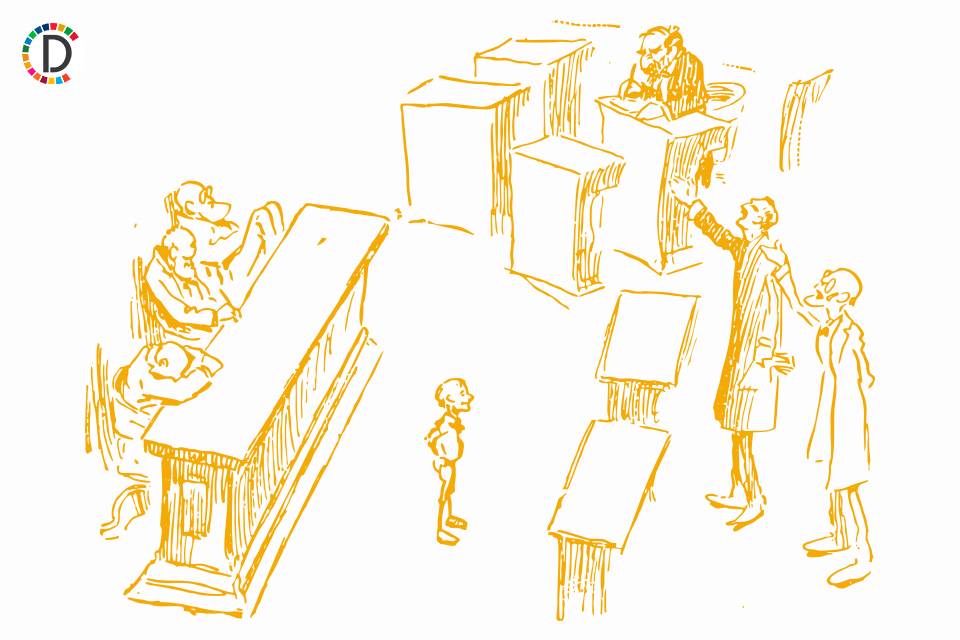India led the way in discussing victims' rights at an early stage: Justice Surya Kant
India was among the countries which demonstrated the earliest response in discussing the victims rights vis-a-vis the rights of the accused, Supreme Court judge Justice Surya Kant said on Tuesday.

- Country:
- India
India was among the countries which demonstrated the earliest response in discussing the victims' rights vis-a-vis the rights of the accused, Supreme Court judge Justice Surya Kant said on Tuesday. He said the Supreme Court for the first time issued several directions in 1994 for a victim's welfare, including protecting the anonymity of rape victims and providing them legal assistance, while the United States passed the Crime Victims Rights Act only in 2004. Delivering the third Soli Sorabjee memorial lecture 'Human Rights and its Development in India' organised here, he said the country through the Code of Criminal Procedure (CrPC) and judicial precedents developed a "sweeping set of rights" for the victims. "This may be in stark contrast to perhaps a developed country like the USA, which passed the Crime Victims Rights Act only in 2004," Justice Surya Kant said. "India, on the other hand, demonstrated one of the earliest responses in discussing the rights of victims in cases such as the Delhi domestic working women's forum (case in 1994), where parameters were issued (by the apex court) towards assisting rape victims through steps such as legal representation, protection of anonymity, assistance of the police station among others," he added. The apex court judge said that far-reaching changes had been implemented, especially for the victims of domestic violence and sexual assault, through expansions in the legislative framework such as the Prevention of Women from Domestic Violence Act of 2005. "Both statutorily and judicially, measures have been undertaken towards ensuring heightened women's safety, compensation for rehabilitation of victims of crime and guidelines towards the extent of victim participation necessary in criminal proceedings," he said. Justice Surya Kant said human rights have been an integral part of India's culture right since the inception of the country's civilization and at present these rights were intended to be the highest moral precepts and political ideas which nation-states were expected to adhere to. "Presently, the discourse on this subject by several jurists often characterises human rights as the gift of the West for the rest. There is a prevailing belief that the imposition of international human rights treaties mirrors cultural imperialism, akin to the colonial endeavours of western nations in the past," he said. Justice Surya Kant said that there might be a "personal need" for the West to highlight the shortcomings of the current human rights regime prevailing in the developing world. "But, instead of pursuing a one-size-fits-all approach, there should be a flexible approach, better suited to the needs of an increasingly diverse world," he said. The top court judge said that human rights were not constant and were shaped by the "winds of change in the post-constitution era".
Justice Surya Kant said the Supreme Court took "judicial actions to expand fundamental rights and enhance the infusion of the Directive Principles of state policy into the fundamental human rights practices". A wide array of human rights had emerged because of "expansive judicial interpretation" such as the right to a speedy trial, the right to free legal aid and even the right to die with dignity, he said. Senior advocate and former SCBA president Rakesh Khanna also spoke on the occasion.
Former Attorney General and constitutional law expert Soli Sorabjee passed away on April 30, 2021, after getting infected with COVID-19. The 91-year-old had served as the Attorney General for India from 1989-90 and then from 1998-2004.
(This story has not been edited by Devdiscourse staff and is auto-generated from a syndicated feed.)










